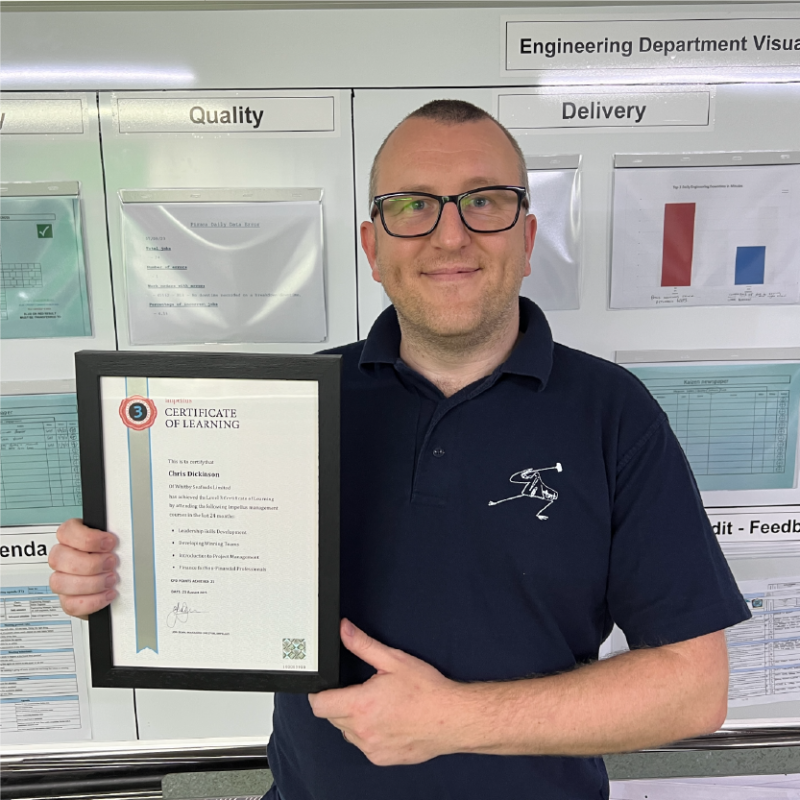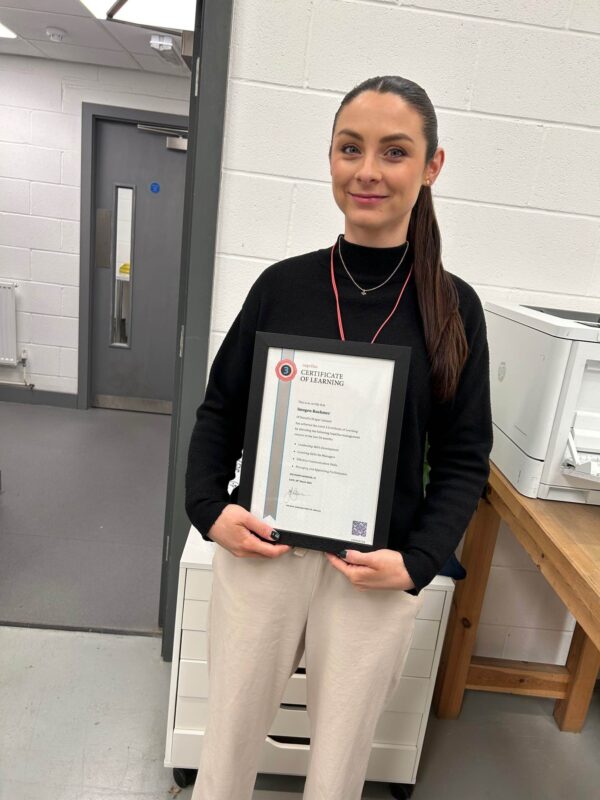So, you’ve got your management training objectives. How do you make that all important decision of which training provider to select?
If you are pushed for time now and wish to download the full guide for future reference, please click on this link – Impellus Q&As Training Provider Selection
Training
Q. Do you want training to take place in-house or is it better for your colleagues to be trained away from their normal working environment?
A. Most organisations feel that their employees benefit from being away from the office and mixing with delegates from other companies and industries. However, a quality training provider will offer its clients the option to put on in-house training courses as well. This is particularly useful when a group of employees need to undergo training at the same time for a brand engagement programme, for example.
An added advantage of external training is that a number of employees from one team are not out of the office on the same day, as a few can attend one week and more the following week, for example. Also, if one or more delegates are unable to attend on the day, they can be fitted into an open course quite quickly afterwards, whereas if this was an in-house course, it would be expensive to re-run for a small number.
Q. What does the term ‘open course’ mean?
A. Most training providers offer open courses which means that delegates from a number of companies across different industry sectors attend the same course.
Although initially a small number of delegates may feel that someone sitting on their table from a completely different background/sector is irrelevant to them, they soon find that they can share common challenges and learnings to their mutual benefit. Managers appreciate the opportunity to develop solutions and new techniques together.
Q. What are the key advantages of open courses, in-house training and e-learning?
Open courses
- Held at an independent venue owned/booked by the training provider
- Delegates from a variety of organisations and industry sectors (see above)
- Structured learning across a variety of topics
- Courses run regularly and in many locations
- Input and ideas from a variety of organisations provides a rich, learning experience
- Delegates gain an external perspective as well as working through their own organisation’s challenges
In-house training
- Training delivered at your premises to your employees
- Personalised, bespoke learning designed to fulfil your organisation’s specific requirements
- Suitable for a number of people with the learning requirement who can all be away from their desks at the same time
- Content, input and sharing has an internal focus only
E-learning
- Very suitable for IT, mathematical & statistical learning
- Complements other learning to present feedback and results and for the purpose of producing award assessments
- Delegates can choose the time and place to study
- There is no delegate participation or integration
- No sense of occasion of having attended a training course
Q. What experience can your delegates expect in the training session? 
A. The training experience is one of the most important factors when choosing a management training provider. Your managers will probably want to know this above everything else. Formats for learning can vary and some delegates are nervous about being asked to ‘role play’ within a training session. You may wish to clarify the maximum number of delegates in one session, room layout, number of delegates per table, and the type of group activities/break-out sessions.
Q. How many training venues does the provider offer?
A. A quality training provider will offer frequent courses in all major cities/towns, which will be relatively easy for your delegates to reach. If your organisation has multiple sites around the country and/or you have employees based in different locations, it will certainly be cost-effective and save your delegates time, if they can attend a course in a location near to them. You can also rest assured that each of your employees experiences the same training irrespective where they attend the training.
A. Does the provider offer a variety of courses and for different levels of seniority?
A. A specialist management training provider will offer, as standard, a range of management training courses to cover most aspects of your delegates’ roles. They will also provide different levels of courses dependent upon the responsibilities and seniority of your delegates.
Aside from their standard courses the training provider may also be able to provide ad hoc training to support managers in customer service skills, financial awareness, etc., so if you think this is something you may need in the future, it would be worthwhile asking your shortlisted providers what experience they have in other areas.
Even a training provider that predominantly provides open courses should be able to offer in-house and bespoke training, so again you may wish to enquire about this if you think it is something that you may need in the future.
Q. What is the longevity and flexibility of the provider of the training?
A. This is a big unseen one! If you’re embarking on a management training programme you will probably have a group of managers ready for training now and others to be trained later on. There will be new recruits joining the business in the future who will also need to undergo the training. To ensure consistency in the training delivered and the learnings gained, an established provider with experienced trainers is essential.
By working with the same provider over a number of years, you can continually develop your employees safe in the knowledge that the newer recruits are being trained in the same way as the longer-serving members and that they can share and pass on knowledge.
It will also be helpful to know if each individual course can be attended on its own but also used as part of a framework/award programme or whether your managers will be expected to attend courses and complete the training over four or five consecutive days.
Q. What are the advantages of using an external provider?
A. Most small to medium-sized companies do not have the in-house skills on a full-time basis to be able to offer a range of course topics to meet the diverse needs of their employees. Larger organisations may have in-house trainers but they do not necessarily have the expertise in all areas nor the freshness of ideas offered by an external company.
In addition, the use of a specialist external provider brings authority and credibility to the training that may not be achieved with internal trainers.
Many corporate organisations with their own in-house training departments also like to use external providers so that their managers absorb new ideas and techniques.
Q. Does it matter if the training provider employs its own trainers or uses associates?
A. Definitely! The key benefit when a provider employs its own trainers is consistency. So irrespective of the time, location and topic of the course, your delegates will be delivered consistent, high-quality training by a team of trainers who continuously work closely together.
Additionally, your employees may meet the trainer again if they take a course in the future which provides consistency and enhances the delegate experience – this is much less likely with an organisation that uses associate trainers.
Administration
Q. Can your delegates choose different training modules within the courses on offer?
A. This depends on the training provider and the courses they offer. If they are an accredited learning and development training provider they will work with a professional body like the Institute of Learning & Management (ILM). This means that delegates can choose to continuously develop professionally and study an award. It will depend on the award but generally there are core modules for all participants, as well as a choice of optional modules from which each delegate can choose depending on their preference and job title.
Q. Does it matter if the training provider is accredited and what does it mean?
A. There are many organisations who offer training, so you will have a great choice when selecting a provider. If the provider is accredited by a professional body like the ILM, CIPD or similar, it signifies that their trainers and content have been assessed and certified by a professional body, so they will be delivering high-quality courses. This accreditation will be regularly reviewed by that body so training and administration is likely to be of a consistently high level.
It also means that the provider can offer your employees the opportunity to further develop professionally and support them on the road to achieving an award.
Q. Is there an option for your people to continuously develop/study further after attending a course?
A. If the training provider is accredited with a professional learning body like the ILM, they will offer an award scheme and support your delegates to achieve this qualification (see above).
Where gaps are identified in skills or your employee wishes to enhance their knowledge in a particular area, there should be the chance to take further courses on different topics.
Q. If there is an award scheme, what is the process?
A. The training provider will be able to clarify their individual details. You will probably need to know the different levels of award available, the time period allowed to attend additional courses and complete the assessments, whether the assessments can be completed online or if your colleagues need to go to an approved centre to complete their assessments. The costs and registration process involved should be clear too.
Pricing
Q. Is there a straight-forward pricing structure to the courses?
A. A training provider that offers a variety of courses on a regular basis should have a transparent pricing structure that may well be displayed on their website. If you are prepared to buy a bundle of courses upfront there may also be the opportunity for a discount.
A straight-forward pricing structure is particularly beneficial for HR managers who are responsible for booking many delegates onto training when it comes to budgeting and achieving sign-off and it ensures that costs do not get out of hand with future moves and changes.
Q. How do I find out if there’s any funding available for my organisation?
A. Funding of up to 50% is currently available to organisations in England, Scotland and Wales who are investing in management training via the Institute of Learning & Management (ILM) open courses.
This makes access to training easier to start at the moment and helps to provide extremely good returns on training investment. With the current budget you only need to provide a few details about your organisation and the delegate(s) attending and then the process can be completed quickly over the telephone.
Q. Finally, do you think you will enjoy working with them?
A. It goes without saying, but first impressions count. Can you build a rapport with the people on the phone, do you find the trainers knowledgeable, professional and approachable and is the organisation interested in understanding your training requirements?
Good luck in your search for a management training provider. We would be happy to help with any other questions you may have – so please contact us.























